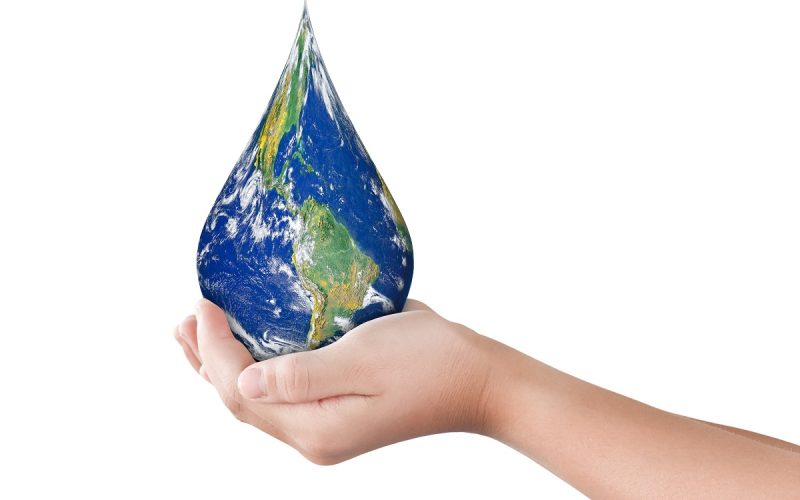Freshwater supports life. It is the foundation for agriculture, industry, ecosystems, and human survival. However, these resources face increasing pressure due to climate change, population growth, and overuse.
Rising global temperatures worsen these challenges, demanding immediate action to preserve and manage these critical resources.
The Impact of Climate Change on Freshwater Supplies
 Climate change disrupts the natural water cycle. Higher temperatures lead to greater evaporation, lowering water levels in lakes, rivers, and reservoirs.
Climate change disrupts the natural water cycle. Higher temperatures lead to greater evaporation, lowering water levels in lakes, rivers, and reservoirs.
These effects are compounded by extreme weather events, such as prolonged droughts and intense storms. Regions that once relied on predictable rainfall now experience irregular patterns, leading to both shortages and floods.
Communities dependent on glacial runoff face dwindling supplies as glaciers shrink. Rising sea levels add to the issue, with saltwater seeping into freshwater sources in coastal regions. These factors highlight the need for proactive measures to protect water supplies globally.
Population Growth and Overuse
As the global population grows, urbanization drives higher water consumption, especially in rapidly growing cities. Farming alone uses about 70% of available freshwater.
Changing diets, particularly those involving water-intensive crops and livestock, further increase demand. Industrial processes like manufacturing and energy production also intensify the strain on limited resources.
Outdated infrastructure worsens the situation. Leaks in pipelines and inefficient irrigation systems waste significant amounts of water, with some cities losing nearly half their supply before it reaches households. These inefficiencies call for urgent improvements in how we manage water systems.
Solutions for Conserving Freshwater
Addressing freshwater challenges requires a combination of policy changes, technological innovations, and community efforts. Below are strategies that can help safeguard water supplies:
1. Improved Farming Practices
Farming plays a major role in water conservation, and adopting efficient techniques can reduce waste:
- Drip Irrigation: This method directs water straight to plant roots, cutting down on evaporation and runoff.
- Drought-Resistant Crops: Growing plants that need less water can help maintain food production while using fewer resources.
- Soil Moisture Sensors: These tools measure how much water crops actually need, preventing unnecessary watering.
2. Better Urban Water Management
Cities can adopt smarter systems to reduce water loss and maximize usage:
- Detecting Leaks: Technology that identifies pipeline leaks can prevent significant water waste.
- Rainwater Collection: Storing rainwater for uses such as irrigation and cleaning offers a practical solution.
- Reusing Greywater: Treated wastewater from sinks and showers can be repurposed for non-drinking purposes.
Together, these approaches create more sustainable systems that reduce wastage and support urban growth.
3. Protecting Natural Resources
Safeguarding ecosystems helps maintain clean and reliable water supplies:
 Restoring Wetlands: Wetlands act as natural filters and reservoirs, helping with flood control and water quality.
Restoring Wetlands: Wetlands act as natural filters and reservoirs, helping with flood control and water quality.- Conserving Forests: Trees capture rainfall and replenish underground reserves.
- Maintaining Rivers: Protecting rivers and streams ensures clean water access for people and wildlife.
4. Advancing Technology
Technology offers innovative solutions to freshwater challenges:
- Desalination Plants: These facilities convert seawater into freshwater, providing reliable supplies in coastal areas. Recent innovations have improved efficiency.
- Water Purification Systems: Portable and community-level systems can provide clean water in underserved regions.
- Smart Water Grids: These networks use sensors and data to distribute water efficiently and minimize waste.
5. Policy and Public Awareness
Policies and education play a critical role in promoting conservation:
- Fair Water Pricing: Charging reasonable rates for water encourages conservation and funds system improvements.
- Education Campaigns: Informing people about water-saving methods fosters widespread behavioral changes.
- Regulatory Measures: Policies that promote sustainable water use in farming and industry help protect resources for the future.
How Individuals Can Help
Individual actions contribute significantly to water conservation. Simple changes, such as fixing household leaks, turning off taps while brushing teeth, and using water-efficient appliances, can save thousands of gallons annually. Supporting businesses that prioritize sustainable practices also encourages broader change.
In gardening, choosing plants suited to local climates reduces watering needs. Collecting rainwater or switching to efficient irrigation methods can further cut water use. Every effort matters when addressing the freshwater crisis.
Successful Conservation Efforts Worldwide
Some regions have implemented effective water conservation strategies:
- Israel: Through advanced irrigation and desalination, Israel reclaims and reuses over 85% of its wastewater.
- Singapore: By combining rainwater collection, desalination, and recycling, Singapore has developed a self-sufficient water management system.
- California: Initiatives such as groundwater management and rebates for water-saving devices have helped the state tackle recurring droughts.
These examples show how innovation and planning can create sustainable solutions to water scarcity.
Challenges to Address
 Despite progress, significant challenges remain. Funding large-scale water projects in low-income regions is often difficult, leaving vulnerable populations without access to reliable water supplies.
Despite progress, significant challenges remain. Funding large-scale water projects in low-income regions is often difficult, leaving vulnerable populations without access to reliable water supplies.
International cooperation is necessary to manage shared resources, but political disputes can delay solutions. Public misinformation about water issues also reduces the urgency for action, further complicating efforts.
The Path Forward
Protecting freshwater resources requires action at every level—governments, industries, and individuals all play a role in addressing this growing challenge. Investments in innovative technology, infrastructure upgrades, and education are essential to securing a sustainable water future. Freshwater is a finite resource, and its conservation is vital for ecosystems, economies, and human well-being. Every effort, no matter how small, helps create a lasting impact.
At Nature Quest Journal, we bring you the latest news and in-depth analysis on conservation efforts worldwide. Our articles aim to inform and inspire, helping you stay updated on the challenges and solutions shaping our planet’s freshwater future.
Explore Nature Quest Journal today and join the conversation on protecting our planet’s most precious resource. Together, knowledge can drive meaningful change.

